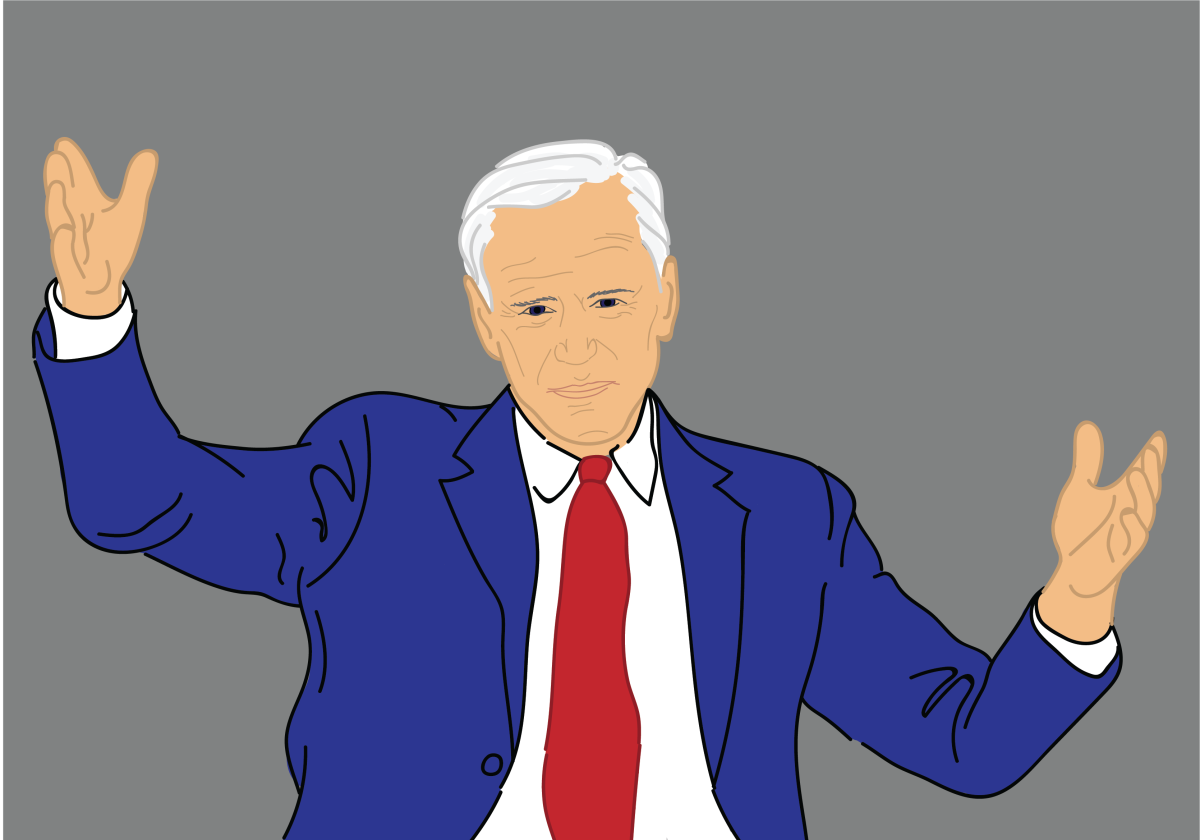Biden’s propensity to touch shouldn’t have a place in politics
When I was in first grade, we learned the difference between when a touch was okay or when one was not acceptable. We learned that if someone’s touch made us uncomfortable, then by all means it was unacceptable. If a 6 year old can be taught not to touch people in inappropriate ways, then grown men—especially our country’s leaders—should be able to follow suit.
Unfortunately, former Vice President Joe Biden is not an abnormal case. Yes, we thought he was kind and viewed him as “America’s Dad;” He was a part of America’s Best Duo, but we’ve seen the downfall of someone of that stature before (i.e. Bill Cosby). While Cosby and Biden’s actions greatly differ in degree, both fail to recognize the importance of a person’s comfortability.
Lucy Flores, the former lieutenant governor nominee for Nevada and the first woman to come forward to call out the former vice president for his inappropriate touching wrote that she “felt two hands on [her] shoulders,” going on to say that “[she] froze [and] felt him get closer to [her] from behind. [Biden] leaned further in and inhaled [her] hair. [Flores] was mortified. He proceeded to plant a big slow kiss on the back of [her] head.”
In her piece published in The New Yorker magazine, at every step of the 2014 encounter, she asked herself “Why is the vice president of the United States doing ‘x’ to me?” Flores’ reaction to Biden’s touching would be normal of any woman; Biden was seen as an admirable vice president, one who supported LGBTQ rights and seemingly respected women, so why would he be smelling and kissing your hair?
Unfortunately, Flores’ case is similar to most women who are in subordinate positions to their male superiors. They experience inappropriate touching, kissing and/or talking. It becomes the automatic differentiation of power.
In Flores’ position, who would she be to say that the vice president of the U.S. sexually harassed her?
Typically in the workplace, if your male boss touches you inappropriately or talks to you about inappropriate topics, you may often worry about the effect if you report it, even though it is illegal for an employer to fire someone for reporting sexual harassment. The power dynamic makes any sexually charged situation difficult, but I can’t even imagine it coming from the vice president of the United States, especially for a democratic hopeful.

The other problem that comes from Biden’s inappropriate touching that is too familiar to those who have experienced sexual harassment, is that the offenders don’t seem to realize how uncomfortable they’re making people. The easiest way to know if a person is comfortable with how you’re interacting with them is if they tell you.
Biden didn’t ask the women he was touching if they were comfortable with his actions. As one of his accusers, D.J. Hill, put it, “If something makes you feel uncomfortable, you have to feel able to say it.” Biden did not even give those women the space to tell him to stop.
In a similar, but much more severe way, Cosby did not give his victims the ability to express their discomfort with what was happening, mostly because Cosby had taken that ability away by drugging them. Both Biden and Cosby did not afford the women the chance to consent.
On April 3, Biden released a video saying that part of his political career has always been about making human connections, which includes grabbing people by their shoulders to be encouraging. But now, Biden said, social norms have begun to change, which includes boundaries and personal space. However, this argument does not make sense in the broader scheme of what he was doing: kissing and smelling people.
Then, on April 5, after making unsavory jokes about hugging at a conference, Biden later half-heartedly apologized by saying, “It is important that I, and everyone else, is aware that every woman and man who feels uncomfortable should have the right to say, ‘Hey, I’m uncomfortable with that.’”
So if Biden understands that people should have the ability to consent with how they are being touched, does that excuse the touching (and other actions) that he was doing? No.
These actions, along with holding people too long and placing your hand in more private areas, are not new social norms and should always be assumed to make others uncomfortable. They are what we’ve been taught since first grade. Making human connections to better your political career should not come at the expense of disregarding a person’s comfort.















































